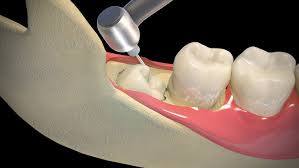How Mindfulness Practices Can Enhance Your Mental Health
Most people tend to consider mental health as a state of healthy cognition and neurological function. However, it involves a broader horizon which includes aspects related to your emotional, spiritual, behavioral, and social well-being. When it comes to improving your mental health, mindfulness is a recent practice that seems quite effective.
While people are aware of the meaning of mindfulness, there’s still a long way to go in understanding its practical application and the ideal ways to achieve it.
Here’s a guide to comprehending mindfulness and its benefits for your mental health in the long run.
What Is Mindfulness?

Before understanding the ideal techniques to master the art of mindfulness, it’s important to find out the real meaning of mindfulness. It refers to a process of being fully immersed in the present moment. Moreover, all you do is observe your thoughts, perceptions, and the way you feel at the very moment. Such a process may help tackle many health issues, especially the ones concerning your mental health.
Also, it allows you to be more productive and focused, and make the most of the present times. Although the practice of being mindful may seem intriguing, it involves rigorous hard work and dedication in the long run. You need to engage your body and mind in constant practice and get rid of the distractions.
Effect Of Mindfulness On Your Brain
Did you know that mindfulness can affect your brain structure and chemical regulation as well? While mindfulness may seem to be a purely psychological phenomenon, it can induce structural and morphological changes in your mind. Being mindful can cause neuroplasticity and increase the activity of your brain’s areas concerned with attention span and emotional stability. Also, it has an impact on your awareness levels and may transform you into a confident individual.
Studies reveal that practicing mindfulness can help you unwind and take the stressors away. When you stay in the present moment, it lowers your brain’s production of stress hormones or cortisol. Further, the process increases your concentration levels and can make you complete the daily chores faster.
Such accomplishments contribute to higher self-esteem, confidence, and cognitive flexibility. Overall, mindfulness positively impacts your mind and can enhance psychological well-being in the long run.
Ways To Incorporate Mindfulness In Your Life

Most people struggle with the practical application of mindfulness in their daily routines. From incorporating mindfulness in your routine activities to certain meditation techniques, you may try different mindful ways.
1. Use Natural Remedies
One of the most sought-after ways to incorporate mindfulness into your lifestyle is through herbal remedies. You can try out herbal teas and essential oils to enhance your mindfulness practices. Some herbs like kratom or mitragyna speciosa may reduce stress, induce calmness, and make you feel better. This is because it interacts with the opioid receptors in your brain to relax your mind and elevate focus. You can try different edibles and tinctures from Kratom Express to feel more confident and mindful.
Other herbal teas like peppermint or chamomile can increase mental clarity, helping you concentrate and focus on the work at hand. Such effects on your brain can contribute to a mindful and healthy routine.
2. Start With Mindful Breathing

Did you know that your breathing patterns play a significant role in managing daily stressors and long-term health? To stay more mindful, you must start transforming how you breathe. Focus on your breath before you get out of bed and do some breathwork.
Also, you must observe how you inhale or exhale, shifting your focus on the air that fills your lungs. Such a simple act can make your day more calm, relaxing and productive.
3. Incorporate Mindful Body Movements
When was the last time you moved your body with a full awareness of muscular tension and joint motion? Most people tend to move without awareness of the body parts coordinating such a movement. It’s about time to practice mindful movements like yoga, stretching, or even a small walk after work. This will likely connect your body and mind to the present moment without any thoughts related to the past or future. Simply being more aware of your body parts and listening to the way your body responds can help ease tension.
How To Overcome The Challenges?
Just like any other new habit, even being mindful takes a lot of effort and comes with its challenges. One of the biggest challenges in this journey is to overcome the distractions and let your mind stay still. For this, you need to observe the wandering thoughts and gradually guide your mind to the present. You might want to stop forcing this process on your body and let it flow naturally.
Also, try consistently with the practice and start with some small routine tasks. Once you master the small tasks, you can shift your focus to the bigger and more important ones. Learning mindfulness involves learning from your mistakes and gradually shifting the focus to the present.
Bottom Line
Mindfulness is an essential tool for unveiling the powers of your mind and achieving success. It has a significant impact on your mental health and can lower the risk of developing cognitive decline up to a great extent. All you need to do is incorporate some mindfulness practices to your daily routine and focus on the present moment. You may start with small and manageable tasks like brushing your teeth or some focused breathwork.
Apart from this, natural remedies like kratom supplements or herbal teas may add to the relaxation and help achieve your mindfulness goals. Make sure to do your bit and become more mindful for a sound mind and a healthy body.



